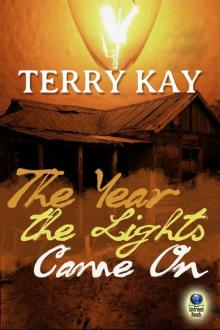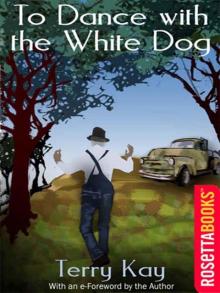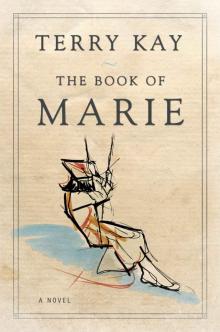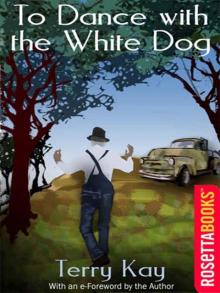The Book of Marie Read online
Page 3
We are nearing the end of the corridor, approaching the stairwell leading to the second-floor library. English classes were conducted in the library, and by agreement with Marilyn Pender, the football team always met as a group, always during first period. Marilyn Pender had long surrendered in her efforts to teach English to football players. She met us at the door of the library and distributed magazines. Reading skills, Marilyn Pender contended, were as important as writing skills. She had one rule for anyone who played football: never interrupt the regular class. It was a rule I broke daily. I had a love, and a knack, for all things related to English.
I see three young boys rush up the stairwell, see one pause, turn back and lean over the railing. The boy calls out: “You better move.”
A girl stands in the middle of the corridor, perfectly calm, gazing arrogantly at the stampede approaching her. The new girl, I reason. Supposedly bright, supposedly strange. Recently moved to Overton from Washington, DC. She looks different enough—glasses, long hair braided in a single pony-tail, no makeup, dressed in a brown ankle-length skirt and a man’s over-sized white oxford shirt, white socks on her feet and her feet tucked into sandals. She is holding a large notebook filled with note paper. She could have been nude and not have looked as out-of-place.
“You better move,” the boy on the stairwell shouts again.
The girl does not move.
“Yeah, you better move,” Lamar growls.
“Go to hell,” the girl says calmly.
The Purple Panthers of Overton High School stop in mid-step unison, stop as though slapped or jerked back by a tethering rope.
“What’d you say?” Lamar mumbles after a confused moment.
“I said you could go to hell,” the girl hisses, stepping toward Lamar. “Just who do you think you are, anyway?” She is only inches from Lamar’s blood-blushed face.
“We’re the Panthers,” Lamar says.
“So?” the girl snarls.
“Ah, we’re the football team,” I say, pushing forward to stand beside Lamar. In the romantic way of youth, I believe such a response is expected of me. A quarterback always speaks for his team.
The girl’s face relaxes. She looks at me, and then her eyes wander over the team. A smile cracks on her mouth.
“We’re headed for English class,” I tell her pleasantly.
The girl snickers. “This is the football team?” she says. “The big team? The number one team?”
I nod foolishly.
“Oh, my God,” she says. She turns and begins walking away, toward the stairs. She is still snickering.
“Now, just a damn minute,” Lamar sputters.
The girl does not turn back. She waves a hand over her shoulder and continues up the stairwell. Her giggles grow into a laugh.
“Who the hell was that?” Art Crews says bitterly. Art plays right tackle. His hair cut makes him appear bald.
“The new girl, I guess,” I say. “She’s from Washington, DC, or somewhere like that. I hear she’s a little strange.”
“Well, shit, Cole, so are you,” Art mutters. A smile cuts across his broad, red face. “But at least you one of us, boy.”
By the end of the day, I knew that Marie Jean Fitzpatrick, daughter of George and Laura Mullen Fitzpatrick, was the smartest person who had ever attended Overton High School. I sat in astonishment through English, biology, history, geometry and typing and watched her commandeer each class. There was not a single teacher who was her equal. In a classroom, she was immediately obsessed, her large, peering eyes darting wildly from textbook to teacher. She squirmed restlessly in her seat, muttered caustically about inane comments the teachers made, corrected them without fear. She seemed emotionally brittle, afflicted by some demonic presence that swelled inside her, pressuring against her brain, tearing at the membrane coating it.
At football practice that afternoon, Art Crews declared her to be certifiably crazy. I remember he looked at me and said, “Damned if she don’t make you sound normal, Cole.”
I remember countering, “She’s just smart.” But I knew she was more than smart; she was brilliant. And scary.
I remember, too, that Art mused, “Wonder what her titties look like? Couldn’t tell with that shirt she was wearing.”
I remember Lamar saying, “She ain’t got nothing. Nothing. She probably makes Cole look like a woman.”
I remember laughing, as I always did when Lamar attempted humor.
Still, I had a sense—a premonition—that the presence of Marie Fitzpatrick would change all of us.
That afternoon the premonition began to take shape.
Bell’s Drugstore was on the corner of Main and Cameron. In Overton, it was where the teenage in-crowd met on after-school afternoons to drink cherry colas and to eat potato chips and pimento cheese or ham sandwiches. And to be seen. Especially to be seen. It was, in many ways, a ritualistic gathering, where posturing for notoriety was learned with far more interest and far more insight than the conjugation of verbs in Marilyn Pender’s first-period English class.
In my memory of it, Bell’s had three high-back booths against one wall. There were two glass-topped eating tables in front of the soda fountain with stool seats that swiveled from each wrought iron leg. By custom, the booths were reserved for those who dated, giving them a chance to nuzzle close, swapping erotic touches in leg rubs and flashing fingers. The booths had a name: the Temperature Zone. Even the three, long-bladed overhead fans could not cool the Temperature Zone.
Traditionally, the in-crowd consisted first of athletes and cheerleaders, and that, too, was part of the learning: with position comes privilege. The others of the in-crowd were usually children of merchants and leading citizens. They had money and money dressed them well, made them enticingly bold, gave them an air that seemed to border on boredom, and somehow they knew that boredom played well, could be as alluring as a forty-yard pass for a touchdown on the muddy plain of Overton High School’s football field.
It was a mix of snobs and hangers-on, the same mix as in every small town in America in 1954—the in-crowd, the clique.
And it was that mix that gathered in Bell’s on the Monday afternoon of the first day of school, the football team arriving late, scrubbed clean from soapy showers, our faces flushed from the aftermath of exercise.
Art Crews paused at the door, his arms raised, his voice thundering, “Where’s my baby?” Art was always first through the door at Bell’s, always announcing himself loudly. It, too, was part of the ritual. Waiting in one of the Temperature Zone booths, Sally Dylan sighed and rolled her eyes as she always did—ritual added to ritual. Sally and Art had dated for three years. Art bragged openly to the football team about the size of her breasts, which was needless boasting. The size of Sally Dylan’s breasts had been obvious to all of us for years.
Thinking of it now, I am profoundly astonished by the power of our ritual. Day following day. Year following year. Bell’s was like a half-way house for half-way adults and the lessons learned there were learned through the monotony of repetition.
Yet, I have a mental motion picture of that particular day, one that rewinds itself after each viewing. When it plays, I see us taking our places in the store, filling it with laughter and with the babble of voices telling stories suggestively edged with double entendre, but short of vulgarity. Stood against the language of young people today, 1954 was the Age of Piety.
I remember we talked about Cone Bailey, our coach, and how his behavior had taken a turn for the worse. Cone Bailey had returned from the African campaign of World War II with a Purple Heart for being wounded by shrapnel from an exploding grenade. There were whispers that the grenade also had affected his ability to reason. Shell shock, the whisperers said. It was common. A lot of men returned from war in a muddled condition.
Lamar was delivering a funny, rambling theory that Cone Bailey’s problem would be solved if he could find a mindless, loose woman for off-the-field companionship when the door of Bell’s ope
ned and Marie Fitzpatrick entered.
The laughter and the talk stopped abruptly. A gasp, as involuntary as a sneeze, flew from one of the booths. To this day, I believe the gasp came from Art, though he would later deny it.
Marie was dressed in unironed shorts and a T-shirt that must have belonged to her father. She wore her sandals, but without socks. Art’s curiosity about her breasts was answered in the expression of awe on the face of every male in the store. Marie Fitzpatrick was beautifully, fully, proudly endowed. It was obvious she was not wearing a brassierre.
She tossed a glance at the numbed crowd, scanned her eyes over me and locked on Lamar, who was sitting on one of the swiveling stools.
“Oh, the team,” she said easily. Then: “Rah, rah.”
“Well, rah, rah to you, too,” Lamar answered in a haughty voice. He looked around for approval. No one responded. “You lost?” he said.
Marie smiled sweetly. “That’s so kind of you to ask,” she cooed. “I am. Maybe you could help me.”
Lamar shifted on his stool. He rolled his massive shoulders, let his eyes wander over Marie’s breasts. “You come to the right man,” he said, grinning arrogantly.
“I need to buy some Kotex,” Marie purred. “Do you know where they keep it?”
Tanya Berry laughed over the telephone, saying she loved what he had emailed to her.
A good beginning, she said. I like this girl.
So do I, he said.
It seems as though you’re having some fun with this, Tanya said. Are you?
I don’t know, he replied.
Cole, it’s all right to have fun, she advised gently. Don’t make the mistake of believing that what you’re doing is exorcism. Maybe it’s just the opposite. Maybe it’s discovery.
I didn’t think about it one way or the other, he told her.
A question, then, she said.
Sure. Ask away.
Did you laugh at all when you were writing?
Once or twice, he admitted after a pause. The Kotex episode was funny. Was then, still is.
I thought it was hilarious, Tanya said. This girl reminds me of someone I’m very fond of.
Who? he asked.
Why, me, of course, she said. Now go back to work.
THREE
December 20, mid-afternoon
Day Two of this—this going back to Marie Jean Fitzpatrick. After reading what I have already written, I realize I am taking great liberties. No one can remember conversations from fifty years in the past, yet, I am not conscious of putting words into mouths. It is as though what I remember is occurring as I remember it. The voices are clear to me. I hear the slang we used, the profanity. I hear the slow, unmistakable tinting of the Southerner’s drawl. I see the faces, the gestures, the exaggerations of smirks turning into smiles. In some way that is magical, or at least mystic, the players of my past have crowded into my office like a traveling band of troubadours and are performing scenes memorized from our history together.
Now, today, as I write, I still see the look on Lamar’s face in Bell’s after Marie embarrassed him with her question about the location of Kotex. His face faded to ash, then colored crimson. No one spoke, no one laughed. After a moment, Marie turned and wandered toward the back of the store. Lamar stood and walked out. He did not look at anyone. And then Art snickered and the snicker rippled throughout the store, picked up giggles along the way, then turned into a roar of laughter.
Before the week was over, Lamar had received enough Kotex to open a black market. The thick white pads were left in his car, shoved into his locker, stuffed into his football helmet, mailed to him in bulky envelopes. He was called The Kotex King and Marie the Kotex Queen. The taunting stopped only after Lamar bolted the door to the locker room before football practice on Thursday afternoon and made an announcement: “Next time I see one of them things, I’m gonna whip everybody’s ass in here, and that, by God, is a promise.”
Lamar was very large, very strong, and no one ever doubted the sincerity of one of his promises.
But Lamar was not the only person who suffered from meeting Marie Fitzpatrick. In the days that followed, she overwhelmed Overton High School, and everyone, from lunchroom attendants to O. J. Mayfield, the principal, believed she was possessed. Teachers were terrified of her, and none objected when, in the middle of a classroom discussion, she would abruptly leave and wander to the playground of the elementary school and swing in the swings. “Well, that’s Marie,” the teachers would say nervously. “She must be bored again. She’s very smart, you know.”
Thinking of it now, from the far distance of a half-century, I believe the attitude of everyone at Overton High School toward Marie Fitzpatrick was philosophically pronounced by Sally Dylan following the Kotex incident in Bell’s Drugstore: “She’s a joke. As long as she don’t bother me, I’m not about to bother her.”
It was an unspoken truce that lasted until a Wednesday afternoon in mid-September, a still-warm afternoon, late summer by temperature, but with the color and scent of autumn lingering invisibly in curled tree leaves and sun-dried grass. On the dirt surface of the Overton High School football field, the team was jogging through our version of wind sprints before straggling off to the field house.
This is how I remember what happened, and it surprises me that I am still able to hear the words. Perhaps it is because the words of youth are as melodic as poetry, even in the crudity of their use.
“Well, by God,” whispered Bobby Matthews, slowing to a stop. Bobby had the nickname of Wormy. He played fullback and middle linebacker. He had a body like a small weight lifter and he loved to inflict pain. He was staring toward the school. He repeated, “Well, by God.”
We turned to look in the direction Wormy was gazing.
Marie Fitzpatrick was striding toward us.
“Well, damn,” muttered Lamar.
“Maybe she’s run out of—them things,” Art suggested, smiling.
“I’ll whip your ass, Art,” Lamar said matter-of-factly. “You may be my best friend, but I made a promise, and I meant it.”
“Cole made me say it,” Art replied quickly.
“Cole ain’t that stupid,” Lamar countered.
Marie continued toward us. Her breasts rolled seductively under the tight green sweater she wore.
I could hear a low moan from Art.
She stopped at the sideline and glared at us. “Cole Bishop, I want to see you,” she said evenly.
“Me?” I asked.
“Yes. You.”
“Well, shoot, Cole, don’t let us keep you,” Wormy mumbled, giggling.
“Yeah, Cole,” Art said in a low voice. “Ask her if you can use them things as shoulder pads.” A snicker skimmed across the field.
I glanced at Lamar with my quarterback look, the pretentious one faking authority, if not threat. Lamar shrugged, then turned and started walking toward the field house. The rest of the team followed. I could hear them giggle, could hear their low mutterings, and I knew it would be torment when I appeared in the field house. I moved slowly, cautiously toward Marie.
“Good Lord, you look like you’re scared to death,” she scoffed.
“Just wondering what you want with me,” I said.
“I want to see if you’re as smart as you’re supposed to be,” she told me.
“What do you mean by that?” I asked.
“Just what I said. From everything I can gather, you’re supposed to be the brains in this school.”
I looked away. I saw the team standing outside the field house, shucking shoulder pads, watching me. “I don’t know,” I said. “I get pretty good grades.”
Marie laughed. “In the school I came from, you’d be lucky to get Cs. You do know that, don’t you?”
I could feel a rush of anger flooding my face. “No, I don’t know that. And you don’t, either.”
“Ooooh, temper,” she teased. “I like that.” She paused, studied my face. “Maybe you’re right. Maybe I don’t know. Maybe
you’re one of those people who just do what they have to do, no matter where they are.”
I did not reply.
“I want you to do something for me,” she said.
“What?”
“I want you to come by my house this afternoon, instead of wasting your time in that stupid drugstore.”
“What for?”
“You’ll see when you get there. Do you know where I live?”
I shook my head.
“In the old Bailey house, on Church Street, down past the Baptist Church. The one with the wraparound porch. You know where it is?”
I nodded. The house was one of the showcases of Overton.
“Good,” she said. She turned to leave.
“Wait a minute,” I called. “I didn’t say I’d come.”
She turned back. Her gaze felt like heat on my face. “But you will, won’t you?” she said. She pivoted confidently and began to stride away.
When I think of it now, I believe it was the badgering from my teammates that made me turn my parents’ car onto Church Street and aim it in the direction of the old Bailey home with the wraparound porch.
The badgering had been ceaseless. Laughter. Mocking. Breast jokes. Towel-slaps. I lied, saying she had asked about a book. The lie meant nothing to my teammates. And I knew their badgering would be worse in Bell’s Drugstore. Only a fool would go to Bell’s.
I remember slowing the car to a stop in front of Marie’s home, wondering why I was there.
I remember listening to the clicking idle of the car motor—can hear it even now. Remember peering at the house. Remember thinking, Maybe she’s not here.
And then I heard her voice: “You going to sit there, wasting gas, or are you going to get out?”
She was standing in the shadows of a large pecan tree, wearing a straw hat, with her hair pulled under it, an oversized T-shirt and denim overalls. She looked like a boy.
I turned off the engine and opened the door of the car and pulled myself out slowly.
I remember looking down the road, remember her asking, “Think somebody’s spying on you?”

 The Year the Lights Came On
The Year the Lights Came On To Dance With the White Dog
To Dance With the White Dog The Book of Marie
The Book of Marie After Eli
After Eli To Dance with the White Dog: A Novel of Life, Loss, Mystery and Hope (RosettaBooks into Film)
To Dance with the White Dog: A Novel of Life, Loss, Mystery and Hope (RosettaBooks into Film)